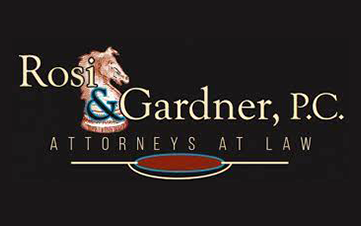No, we’re not tackling existential questions here; we’re being more concrete about it. Specifically, what happens to your stuff, tangible and intangible? The road of inheritance, transfer, and even (gasp!) probate, is riddled with question marks and perceived pitfalls for many people. Will everything have to be sold? Do I need a will? How do I avoid probate?
No, it is not certain that everything will have to be sold. After your death, if there are sufficient assets to pay your legitimate debts, then the remainder of your assets can be distributed according to your wishes. That is, IF you leave a valid will. No will? Then you get the one that the State of Michigan has prepared for you (called “intestacy,” or “without a will”). That may work for some people, in some circumstances, but most people should leave a clear, simple Last Will & Testament, setting forth their wishes, not those of the State.
“But won’t it have to go through probate, if I make a will?” you may ask. The fact is, your estate will be guided by the probate process whether or not you have a will. The only way to avoid probate (assuming that you even want to) is to establish a trust AND keep nearly everything “funded” (titled) in the trust (including all real estate, for most people). If you die with much of anything in your name alone, your estate will be governed and protected by the process of probate. Often, people create a “living trust” just to avoid probate. But, if any account, asset, or piece of real estate is not held and kept in the name of the trust, a probate proceeding will be necessary nonetheless.
That probate proceeding, though, can and will cover every asset that is in your name at the time of your death. Once your executor is given authority, by the Probate Court, to act “in your shoes,” she can organize your assets, liquidate them, pay any associated expenses, and pass them along to the individuals, charities, or organizations as you have instructed. And, without a significant legal contest, your probate estate may even be handled as an “unsupervised, informal” case, with minimal court involvement.
The real key to making the division of your assets as smooth as possible is to select an executor that you can rely upon to carry out your wishes, and to make a will that clearly sets forth those wishes. Your executor can even follow a handwritten list that you leave for her, passing along family jewelry, sentimental heirlooms (that autographed Tigers baseball from the game you saw with your nephew), and antique furniture pieces from your home. Leaving a clear expression of your wishes, in your will and handwritten list, is the single-best way to avoid family disagreements and conflict.
“So, I should just put everything in joint names, then?” Don’t do it! The reasons are many; stay tuned to the next issue for a discussion of some of them.
Rosi & Gardner, P.C.
Latest posts by Rosi & Gardner, P.C. (see all)
- Is Collaborative Divorce the Right Choice for You? Exploring a Path to Amicable Separation - November 29, 2023
- Choosing Harmony: Why Opt for Collaborative Divorce Over Traditional Divorce - August 30, 2023
- Benefits of Mediated Divorce - May 24, 2023
